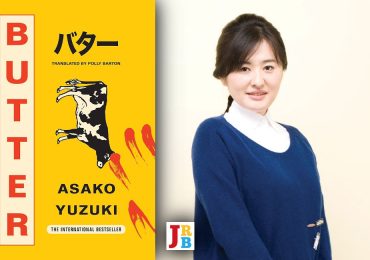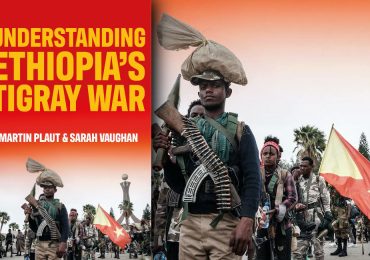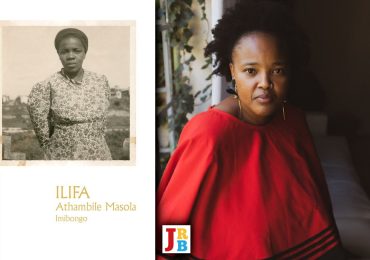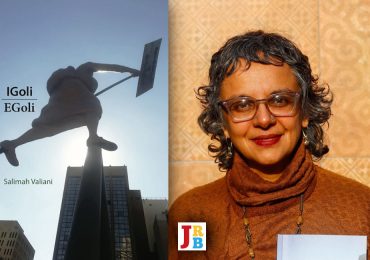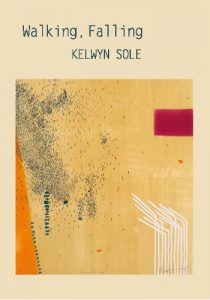 Kelwyn Sole
Kelwyn Sole
Walking, Falling
Deep South, 2017
Read: Four Poems by Kelwyn Sole
Walking, Falling extends Kelwyn Sole’s oeuvre to seven volumes of poetry, a body of work that is rich and thematically diverse, even as it cultivates that diversity along furrows familiar to his readers.
I must be clear: to talk of familiar furrows is no slight—poets have their preoccupations and Walking, Falling covers themes that are signature Sole. These include politics, cant, and folly; the South African landscape—‘natural’ landscape, yes, including cameos by a variety of Southern African birds, but also its urban, suburban, social, and cultural topography; love and the erotic; and jazz and other artists or writers. These are the touchstones of a body of work that has constantly questioned, fretted about, celebrated, eulogised, discovered, re-discovered, and charted, among many other things, a South Africanness in all its contradictions, solidarities, tragedies, absurdities and sometime normalities. Touchstones only, because Sole has a clearly ravenous curiosity and a catholic eye that refuses to compartmentalise the world. Some of his poems can teem with a novelistic life—characters, linguistic registers, a detailed environment, the sounds of a city in the background—that makes a mockery of any easy categorisation into, say, political or love poems. A ‘political’ poem is never only, narrowly, one-dimensionally, about politics—they are never screeds, in other words.
The book opens with ‘Vigil’, a title and poem that may well describe a substantial number of poems in Sole’s oeuvre, specifically his political poems. As the poet considers his own place in what he is doing, one might also consider his place in South African poetry:
Even if with level gaze
always having to speak as
of something else. As if
there was no someone,
anywhere …the words that pass between us
grip dire truths on broken wings.
They flutter from their roosts
to feed on a land made up of
all our bodies once more in thrall,
still bowed down and crippled,
a place where we can’t persuade
our one hand to make common
purpose with its other.I have died many times for this:
talked myself into oblivion until,
piece by piece, my country comes apart
in my hands skin peeling away
a parchment on which I write
speckled with blood and forgetfulnessbecause I can know only one house
that is myself to speak from, hoping to sense
the invisible promise of the planet’s spin
by which a new day will edge at last
into the world
and refuse to be denied.
I have previously described his poetry ‘as a voice, like a conscience, that threatens to disturb the reader’s complacency’. While his politics are clearly of the left proper, and his critical commentary on South African literary and cultural politics have always been critical of the Eurocentric, fastidiously bourgeois aesthetic demands of establishment writers and critics, he has not shied away either from writing against the grain of the cant that passes as radical or leftist thought in South Africa. Throughout his work, he has kept a steady vigil over the slow death of the anti-apartheid dream, which now seems to be in its last throes. Already in his first book, long before the 1994 settlement, Sole was fingering faultlines and contradictions among the left. ‘Hewat’, for instance, describes a Namibian activist asking difficult questions, questions of principle, in meetings:
[he] argues with the fiftyonepercenters
who chew Nyerere endlessly
and dream of a new paradise
behind dark glasses, dream
of their future posts
as Minister of Culture.– It’s a long way
from the food queues of underdevelopment
to the sky-inverted dreams of socialism,
through an embroidery of party officials
knitting themselves special shops
and better houses […]but he insists on conversation
of aid grants with strings
attached to every dollar,
loans made of rulers’ souls
which are never repossessed.(from The Blood of Our Silence, 1987)
Namibian, but easily transferred to a South African activists’ meeting in the late 1980s. Hewat is of course a ‘terrorist’ to the police, but also, due to his principled stance, accused by his comrades of being a ‘spy’. The poem ends, on a single line: ‘He quirks his mouth, and argues.’
‘Pule’ (from the same book) pokes fun at a ‘poet of the people’ as a ‘fatcat in your Mercedes’ whose
stomach and Black
Consciousness protrude
further every time
you make words to make
money.
In Sole’s third book, Love That is Night (1998), poems like ‘Homecoming’ and ‘Housing targets’ turn the critical gaze firmly onto the then new South African state and its politicians, who were then already failing ordinary, poor South Africans and the very majority that brought them to power. ‘Housing targets’ is especially memorable for the way in which the poem—in short strokes—treats the fragility of an already broken people’s dream of better housing, further broken by politicians’ opportunism and neglect. ‘Somewhere in our past / we believed in the future,’ the poem opens,
that a better world
would discover foundation
under our feet, and we
would be forever singing,
in its kitchen.Bricks pile up in a field.
Whether they will be enough
no one knows. How
they fit together
is anybody’s guess.
The politicians come, smile and shake hands, and abruptly leave, while the supposed beneficiaries, left behind,
stare at their own hands
afterwards, puzzled
at precisely what
has been transacted […]squint
between gnarled fingers
pace out the hopeful distances:
– there will be a flower bowl.
– my bed is going here.As for now the doorknobs
have no doors.Their windows peer out
at no sky.
I could go on quoting from subsequent collections, but I quote from a few early poems—and extensively—to give a sense of the vintage of one angle of the political in Sole’s poetry—specifically, a leftist’s gaze on the left and a critique of the post-apartheid state that long predates Jacob Zuma’s presidential years. In some ways, ‘Hewat’ can be seen as a self-portrait of the poet, who, in collection after collection, has quirked his mouth, kept on arguing with the country, and thus kept his stubborn vigil.
Walking, Falling has its requisite share of political poems, ranging from critiques of our masters (‘The leader’) to ones about our own apathy and complicity (‘Apothegms’, ‘Content removed’). In ‘Cape Town™’, Sole is in full song against politicians (their ‘word / is like a die: / a truth / with six sides’) and the rich:
the power of the rich
who always want things stable
who always know better, […]with bemired words
on their lips and profit
on their minds […]The world they build –
laid concrete:
our children’s play
cinched in by wire.
On the plot of
an ancient kramat*
a hotel has risen
up from the dead.
‘Who can speak for us,’ he asks rhetorically of several characters all variously absorbed in the distractions of gadgetry, consumption, and sport:
You
in your darkened lounge
before a laptop’s jaws,
agape as the web’s shining
screen of connection
through shopping
slowly ingests your face?You,
who blow your brains
out through the mouth
of a vuvuzela, and make
a flag out of your face,
assiduously counting
the days until the next
dribble of a ball?
The politics extend to aesthetic matters as well. In ‘Seafront’, Sole muddies the South African lyric by having a seaside walk—a meditative mode per default for poets—interrupted by homeless drunks and tik addicts intent on making conversation with the speaker, to the chagrin of ‘gym-raddled women’ peering over cappuccinos at the group, at what they perceive as an oddity or as a despoilment of their complacent view. It is a ‘world where opposites blur and coalesce’: a restaurant sporting Cuban paraphernalia (the romance of revolution commodified), and across the road, the bumf ‘that proclaim the sang froid / of estate agents’. At the same time, the authority of the lyric voice is undermined when, at the end, wanting to make conversation with ‘the Congolese professor / now reduced to touting parking spots for tips’, the speaker finds that the tout is ‘no longer listening’.
The political poetry is never, however, by deliberate effort. It is never contrived, but felt. Reading through the whole of the book—more so the oeuvre—one is aware that a certain political analytic is always at work. Not in the sense of the platitude that the personal (or everything) is political, but in the sense that the intellect that is predisposed to poetry cannot but engage with the incessantly political nature of the world at which it gazes, be it the everyday of a seaside walk, the workings of capital on the individual and the natural environment, the intrusion of the state (apartheid or post-apartheid) into individual life, or our appetite for destruction of each other. The political intelligence in the poems is not striking a pose, and the poetry itself, therefore, rings with a certain authenticity of expression.
That same sense of authenticity pervades Sole’s poems about love, romantic companionship, and the erotic because love, togetherness, and/or sex are ordinary, in a sense. That is, in Sole’s poetry, they are framed within or by the ordinary, the anti-Romantic, even as they may also become transcendent. In ‘To waken’, for instance, the couple’s day starts with a ‘booting laptop’ that ‘hems and haws’, the partner yawns and stumbles out of bed, and sings uncertainly in the shower, ‘as we start / to travel this journey yet again / of waking up’. So even as the poem ends on a note of transcendence (‘We walk towards the sun’), that transcendence is contingent upon the ordinariness and routine of the couple’s day. It’s never sentimental, nor straining. And when it comes to sex, Sole writes forthrightly, but never crudely; and straightforwardly, not coyly. The erotic is not airbrushed. (I’ll never forget gasping to myself when first encountering ‘through the smudge of black / lush in your armpit / dawn shifts’, from ‘Disjunction’ in his first volume.)
This I think is what attracts me to Sole’s poetry: how he makes poetry out of a real, non-manufactured ordinary, thematically and aesthetically. Contra a popular literary notion (from the early 1990s and well past the 1994 settlement) that the ‘everyday’ is or should be an apolitical aesthetic space—that South African literature and art should divest itself of its political obsessions and rediscover the ordinary—Sole’s poetry insists on politicising it. Politics, that play of power—globally, nationally, locally, at work, between friends and between lovers—that play of power infringes, after all, on our everyday all the time. More than politicising the everyday, Sole turns the idea in upon itself so that the political itself becomes the everyday. Even love, that most intimate and powerfully transcendent of human experiences, is treated as everyday and it is then that everyday that is made poetic.
How does he do it?
I read Sole’s poetry as much for how he says things as for what he has to say. His inventiveness with metaphor is remarkable—although ‘inventiveness’ may suggest contrivance, while there is a naturalness to Sole’s use of figurative language. A woman with ‘dish-discoloured hands’; train tracks that ‘cut the workaday world / in two’; rusting cars with ‘their wheels in the air like dying warriors’; ‘Words like figs long since fallen’; a nipple as a lozenge; chickens that ‘grouch and gossip / over old grain’; car stereos that ‘declare hostilities’; a robin readying itself ‘to plagiarise its neighbours’; and so on. One is always surprised by a metaphor, personification, or the turn of a figurative phrase, sometimes perhaps even momentarily outraged at the technical gumption, but then almost immediately settled again by the rightness of the metaphor or personification. (See how you do with ‘waterblommetjies / lined up like seasick rastas’, from ‘Reconciliation’, 1998.)
Sole also has a good ear for various registers of spoken English, as well as an ease in moving along a continuum between otherwise high and low registers, incorporating words from informal Afrikaans to more formal English like ‘formication’ or ‘horripilation’, without jarring or without sounding like the poetry is working too hard. Again, there is a naturalness to the artifice, and an absence of poetic pretension. The poetry doesn’t draw attention to itself as poetry. It can move from the playful—especially in poems about jazz, which often also play with typographical layout—to a more prosaic diction, yet without losing the poetic, as in ‘Visiting a writer’, a poem that memorialises, and incorporates snatches of conversation with, Marks Rammitloa (better known as Modikwe Dikobe, author of The Marabi Dance). Ultimately, the poetry refuses a monaural world as much as the poet’s gaze refuses a monotone view of the world. In making his poetry, there is no distinction between ordinary, everyday language and ‘higher’ registers.
This facility has attendant tonal qualities. In general, the poetry ranges along a tonal spectrum best described as quiet: ruminative, elegiac, gentle, elated, despairing. I think here of the loudness wars in the digital reproduction of music, where the dynamic range of the instrumentation in any given song is compressed and all the instruments sound equally loud and become noise—an attempt by studios to grab radio audiences’ attention, in an increasingly louder environment and loud advertising jingles. The upshot is that the loudness in music production causes aural exhaustion because of constant noise. The ear wants to be able to hear both the boom of a bass drum and a brush across a cymbal. Analogous to this, print discourses now come at us at ever increasing levels of loudness and bombast, a constant stream of noise.
Sole’s kind of poetry is a reminder that there are still quiet spaces away from the loudness and noise, but which do not eschew the world with monkish withdrawal. As with all serious literature, his poetry provides not only an escape from the noise, but a vital reinvigoration of our poetic imaginary.
Notes:
*kramat: from Malay ‘keramat’; shrine of a Muslim holy.
- Rustum Kozain is The JRB Poetry Editor. He is the author of This Carting Life (2005) and Groundwork (2012), both of which won the Olive Schreiner Prize, as well as, respectively, the Ingrid Jonker Prize and the Herman Charles Bosman Award. His poetry has been published in translation in French, Indonesian, Italian and Spanish. Follow him on Twitter.


